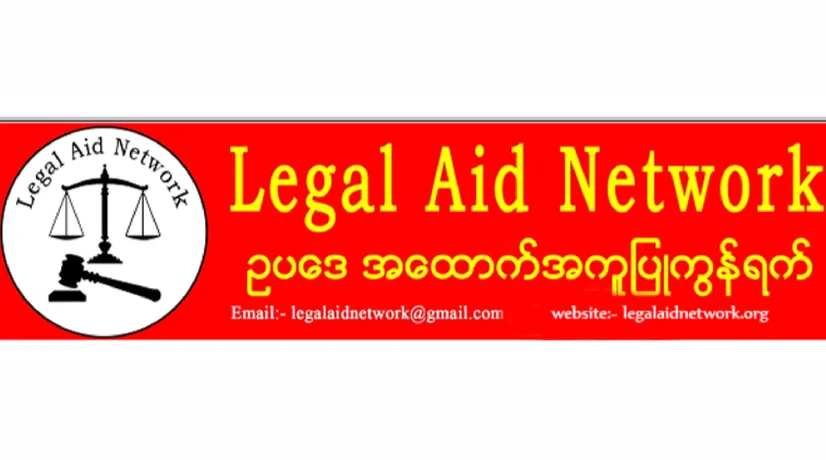Legal Analysis of Superior/Command Responsibility and Myanmar Army’s Admission of their Involvement in Heinous Crimes Which Constitute Genocide
18 January 2018

In regard to killings of ten Rohingyas, in Inndin Village, Maungdaw Township, Rakhine State, Burma/Myanmar, admission of Myanmar Army, as the perpetrators, has astounded almost entire society and proved that similar heinous crimes have been committed by them. Why did they admit so publicly? It is directly relevant to our legal analysis statement, entitled, ‘On the Issue of Repatriation of Rohingy to Rakhine State, Burma1 (Myanmar)2 in which, we stated, inter alia, the following:
In accordance with the doctrine of superior/command responsibility being practiced in international law, it is realized that superior/command responsibility is a form of responsibility for omission to act: a superior may be held criminally responsible under that doctrine where, despite his awareness of the crimes of subordinates, he culpably fails to fulfill his duties to prevent and punish these crimes.
The superior commanders of the Myanmar Army have abused this doctrine. They have attempted to cover up their own responsibility, by taking action against subordinate soldiers who committed a heinous crime which may constitute genocide,3 arisen out of Inndin case first and foremost. They can thereby be seen to be fulfilling their duty to prevent and punish such crimes, and defend themselves if they are indicted in the International Criminal Court or an International Criminal Tribunal for Burma/Myanmar – similar to that of Yugoslavia.
The following sentence – from the English language press release issued by Myanmar Army’s so-called True News Information Team on January 10, 2018 – shows that the leaders of the Myanmar Army have even invoked the terms “superior” and “subordinates” highlighted by our organization LAN from the aspect of international law: It was found that the incident was not submitted to superior levels. So, the officials who needed to control subordinates despite no direct relation to the incident will be necessarily exposed and taken action, and information on completion of action will be released.
For the first time in history, the Myanmar Army publicly and officially admitted that they have already got involved in committing such international heinous crimes. As a matter of fact, it is not because of the case that they are sincere, responsible and accountable, but because of their serious concern that legal action might be taken against them by the international community in near future, even though national judicial system in Burma is not sufficiently powerful to do so. Afterwards, their soldiers have been made the scapegoats for their heinous crimes.
For the first time in history, the Myanmar Army has publicly and officially admitted that they were involved in committing internationally recognized heinous crimes. However, this is not because they are sincere, responsible and accountable, but because of their serious concern that legal action might be taken against them by the international community in the near future, as the national judicial system in Burma is not sufficiently powerful to do so. Their soldiers have simply been made scapegoats for their own heinous crimes.
This action is not only unethical and unprofessional but also against the genuine principles of the Rule of Law, thereby perpetuating the denial of human rights in the entire country. Both the international community and local communities who value human rights need to uncover the truth, protect the rights of victims of heinous crimes, and bring perpetrators to justice, practicing the doctrine of superior/command responsibility. This must involve reform of the entire security sector of the country, to ensure that human rights can be protected and promoted effectively in the long term.
In regard to all serious human rights violations taking place, especially in ethnic States including Rakhine State, responsibility lies with Hluttaws5 and government authorities – on behalf of the State. Accountability particularly lies with the highest authorized body, namely the National Defense and Security Council (NDSC) – chaired by President U Htin Kyaw.
In the NDSC, President U Htin Kyaw and State Counsellor Daw Aung San Suu Kyi are in positions of superior responsibility, while Senior General Min Aung Hlaing and Deputy Senior General Soe Win are subordinates; simultaneously, while Senior General Min Aung Hlaing, Deputy Senior General Soe Win, General Mya Tun Oo6, Lieutenant General Aung Kyaw Zaw7 and Brigadier Kyaw Zwa Lin8 (ordered from top to down as shown in Figure.1) are in superior positions in the OCCDS, Major General Maung Maung Soe9 is a subordinate.
Download full statement HERE.
၎
င
၎
၎
Announcements
28 February 2025
Asian NGO Network on National Human Rights Institutions , CSO Working Group on Independent National Human Rights Institution (Burma/Myanmar)
Open letter: Removal of the membership of the dis-accredited Myanmar National Human Rights Commission from the Southeast Asia National Human Rights Institution Forum

Progressive Voice is a participatory rights-based policy research and advocacy organization rooted in civil society, that maintains strong networks and relationships with grassroots organizations and community-based organizations throughout Myanmar. It acts as a bridge to the international community and international policymakers by amplifying voices from the ground, and advocating for a rights-based policy narrative.